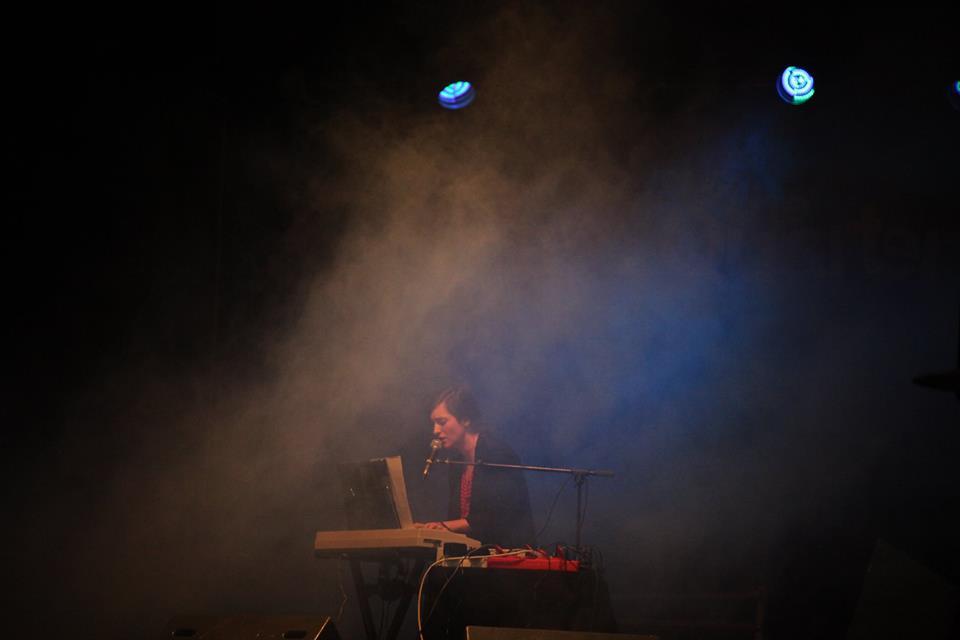Heaven x hell: Umbra talks about her new album Unglued
Published September, 2017
by Easterndaze

Umbra is the solo project of Belgrade-based Marija Balubdzic. Umbra is a music project she started as a teenager. Umbra expresses the dichotomy between her need for noise and melodies, meditative vs macabre moods, heaven and hell. Her new album Unglued is out next week on Baba Vanga.
Can you talk about your background? How long have you been making music and what environment do you come from?
I come from Belgrade where I’ve been studying music from an early age, and where I’ve been involved with quite a few collectives and bands. On the parallel track, Umbra is a long line of music I’ve been making alone since I was a teenager. Gradually I went from composing acoustically and moved towards a mixture with electronic music.
Can you talk about Unglued in particular? Some of the tracks are recorded live, some at home. Is there any difference in terms of emotion/intensity/story for you?
The Unglued album came out primarily from a need to capture the improvised noise tracks that happened to be most on-the-edge at live performances. They were a public duel between the voice and looper, with only a vague idea of structure that preexisted. The tracks recorded at home come from a different mindset. They are composed, and combine the raw noisy textures with instruments, melodies and lyrics. The contrast of those two idioms is what in the end portrays the tenebrous nature of Umbra.
The lyrics are partly in Serbian / partly English. Why?
I don’t really know. My native language is Serbian, yet I find myself dreaming and thinking in English as well. The images, chants, musical metrics and metrics of a certain language simply show up, and I just stay with it. Could be something about a character of the voice in a song that fits better with one of those languages. Could be related to the sound of words whether or not there is an emphasis on meaning. Outside of this album, I also have songs in French and German.
Can you talk about the lyrics to “Bone Madamme” and “Self”?
“Self” is meant to be a hive, a tight space in which lyrics are made only of words that have a self- prefix. It deals with many positive and negative aspects of the way the Self is perceived nowadays. The lyrics are composed of patterns and each pattern is made of words denoting positive, neutral, negative, and violent relations with oneself. Introducing mostly new words, the patterns viciously repeat one after the other, culminating and falling apart in the end. Sometimes I feel sick in my stomach when I listen to that track.
“Bone Madamme” is a call out for a chthonic feminine creature to come into conversation. Her name is repeated after every line in the song, in a way similar to how many old traditional folk chants are structured. Her presence is somewhat felt in the looped instrumental lines and choir parts that eventually melt out from incantation. She was urged to help deal with what could be a wandering ghost by drumming his heart into flesh.
Sonically – there are more experimental, raw, avant-garde tracks, with mangled remnants of your voice, but on the other hand, there are also more “classic” songs, where you are singing. Can you talk about these two approaches?
I feel that these two approaches originate from my interests in music and my personal nature. They were always present, and I couldn’t be satisfied with devoting only to one. I was expressing this conflict with rampant behavior in live performances, and with contrasting structures and layers in my music. When I got my first looper I could much better materialize what I see and feel that was coming from these different mindsets. Since then I practice uniting those two approaches to music more clearly and consciously.